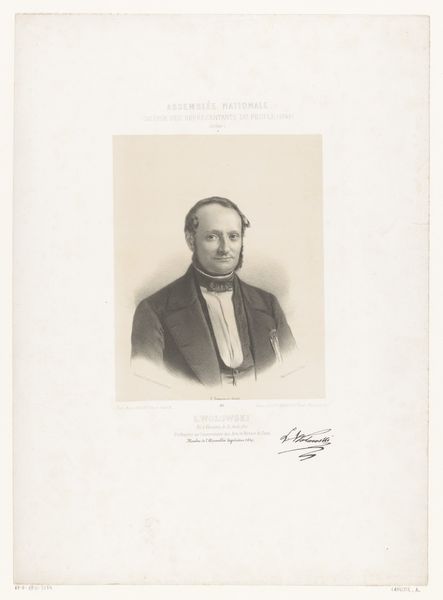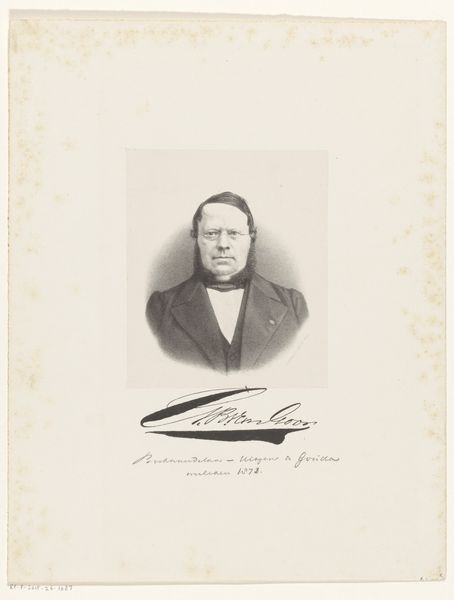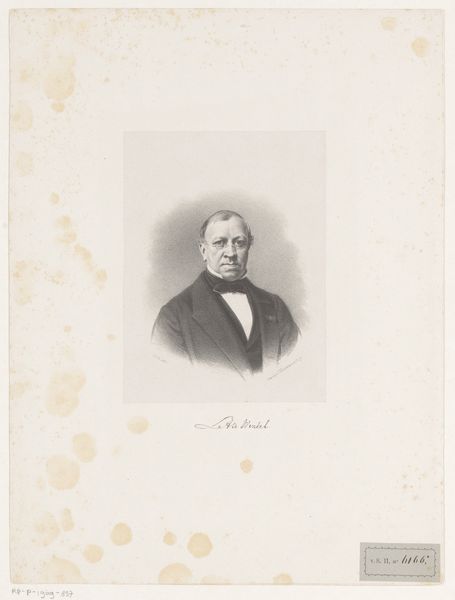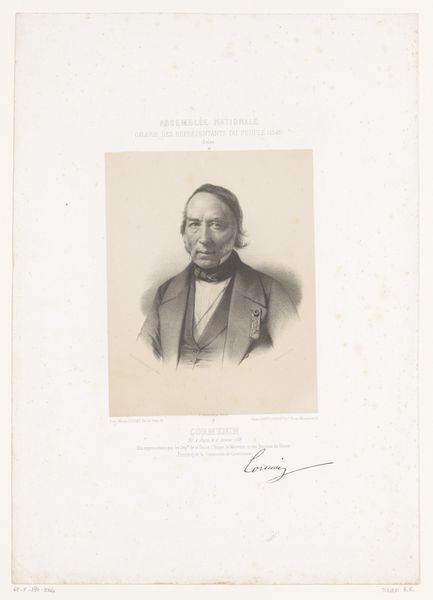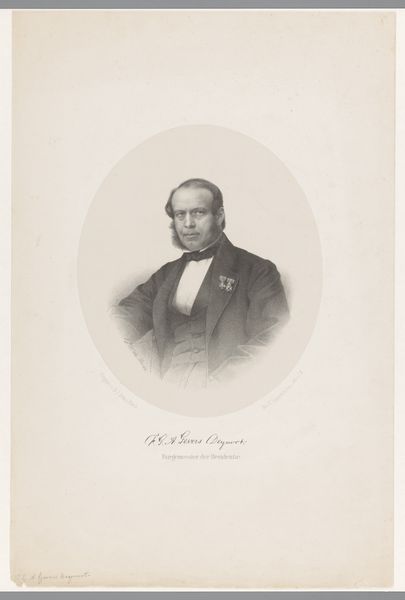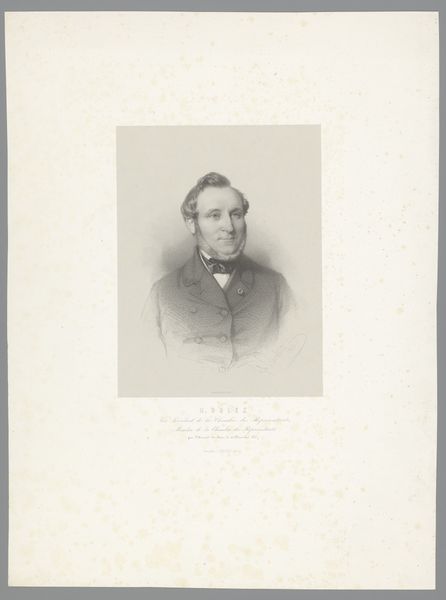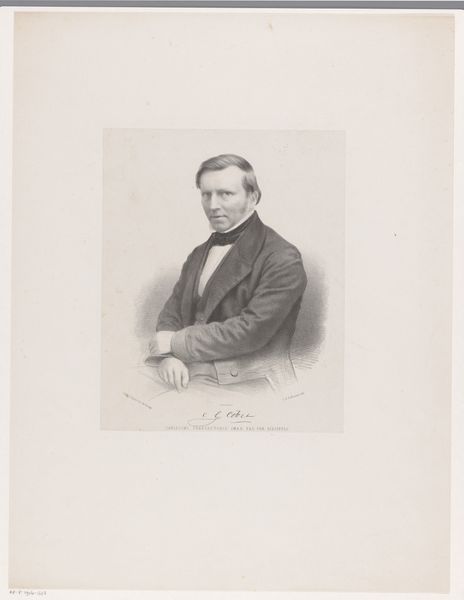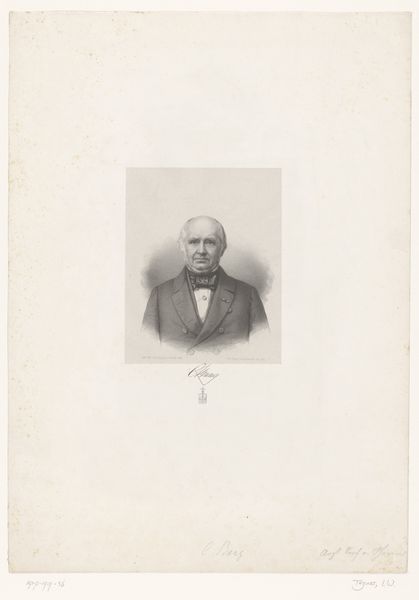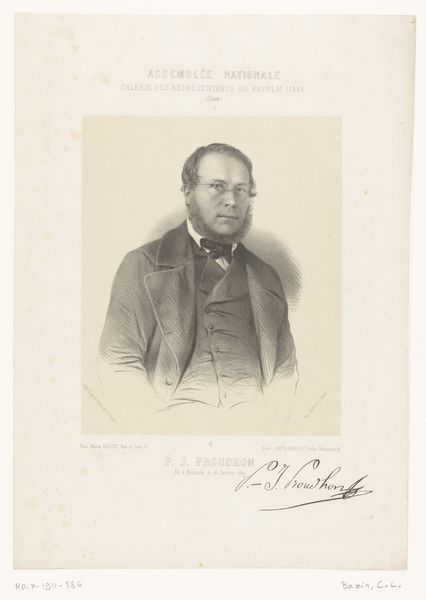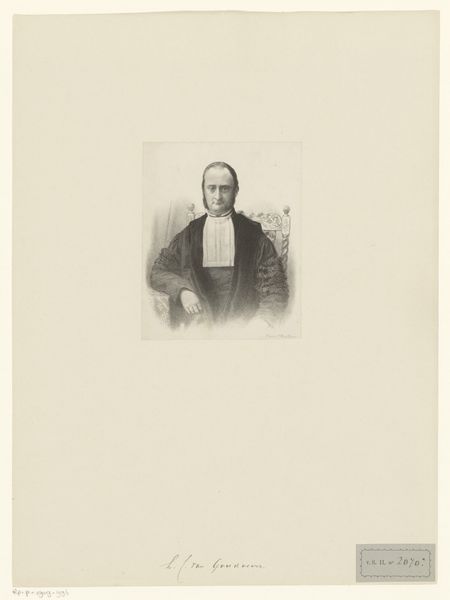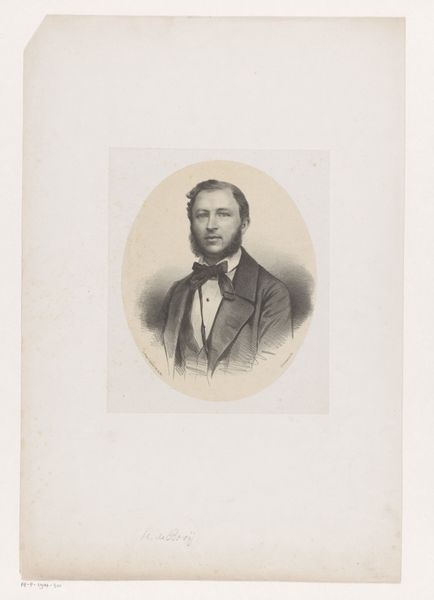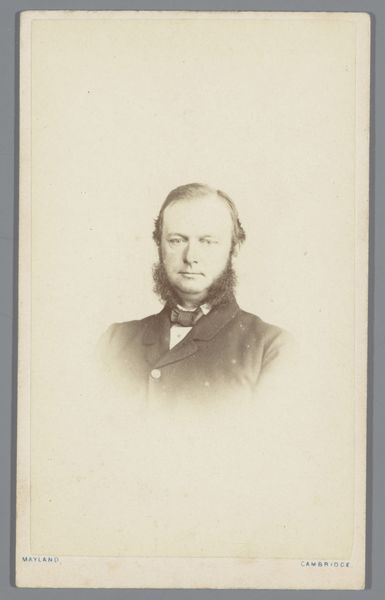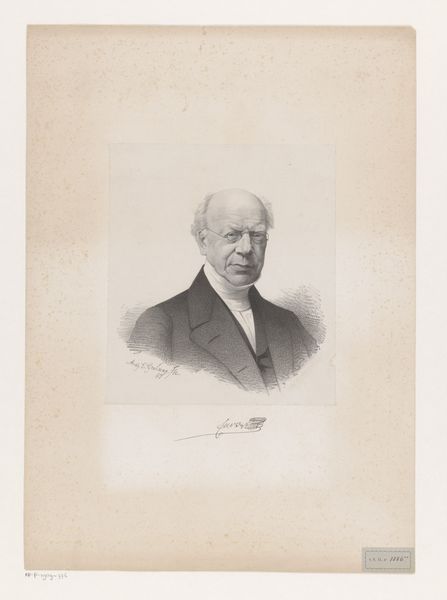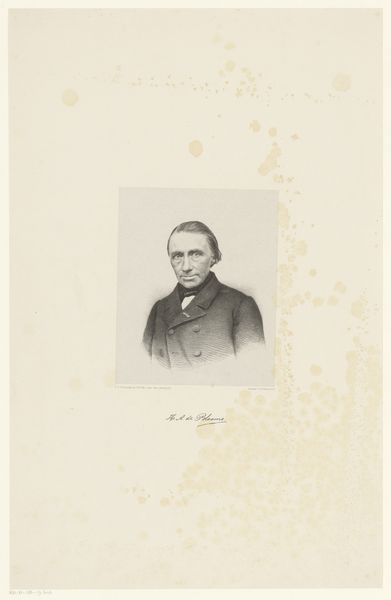
print, graphite
#
portrait
# print
#
graphite
#
academic-art
#
monochrome
Dimensions: height 526 mm, width 353 mm
Copyright: Rijks Museum: Open Domain
Curator: Ah, here's "Portret van Karel Nicolaas Meppen" by Jacob Hendrik Swijser. It's rendered with graphite in a print, created sometime between 1869 and 1887. The sitter seems quite imposing, wouldn't you agree? Editor: Imposing, yes, and rather... contained. There's something very carefully constructed about his expression. Almost as if he's a symbolic representation of stoicism itself, staring back across the years. It has the feel of cultural memory being carefully preserved, a little melancholy but definitely self-possessed. Curator: He looks every bit the preacher; someone central to his community. The monochrome helps to convey that sense of a different era. His very particular white cravat feels symbolic; it’s so deliberately... precise. Editor: Precisely! Cravats and dark suits signal so much. Cleanliness, intellectualism. He's projecting an image of high-minded respectability, echoing certain virtues of the day. Do you find that the limited tonal range amplifies this effect of stern gravitas? Curator: Absolutely, but I also sense the humanity underneath the symbolism. His eyes are a bit softer, carrying perhaps a hint of vulnerability behind the constructed persona. Is it just me or there is the suggestion of fading light about the portrait too? Editor: Interesting observation! That detail connects with broader themes. The print immortalizes him but also acknowledges time's passage; this balance helps amplify the iconographic impact, wouldn’t you say? We are seeing a carefully crafted image intended to convey enduring legacy. Curator: Yes! We see him frozen at the point when time turns to legacy. Editor: I agree, what we see when staring into the eyes of Mr. Meppen isn’t an exact truth, but someone very significant—culturally as well as symbolically. This portrait, I find, tells us as much about the world of the 19th-century Holland as it tells us about its sitter.
Comments
No comments
Be the first to comment and join the conversation on the ultimate creative platform.
